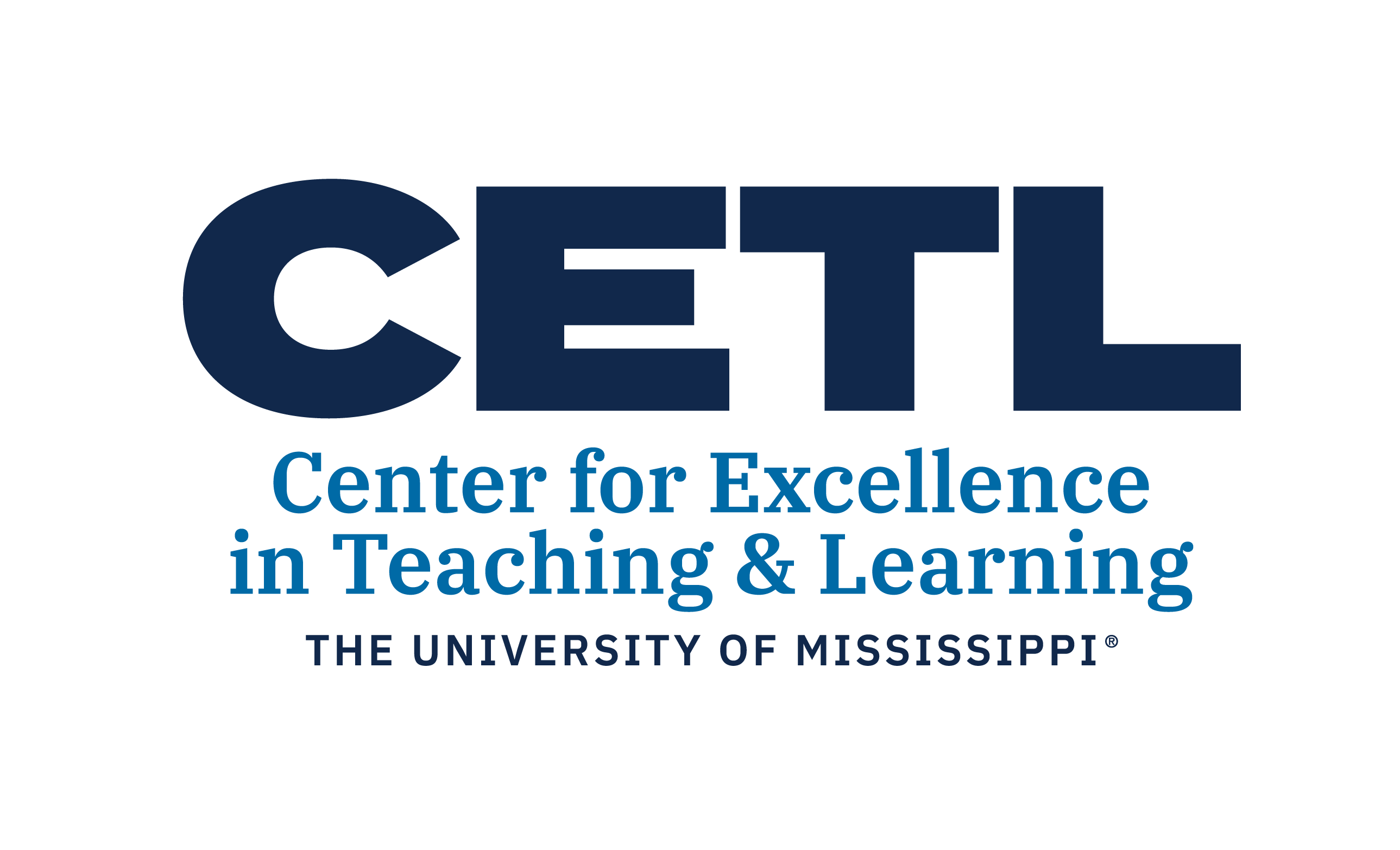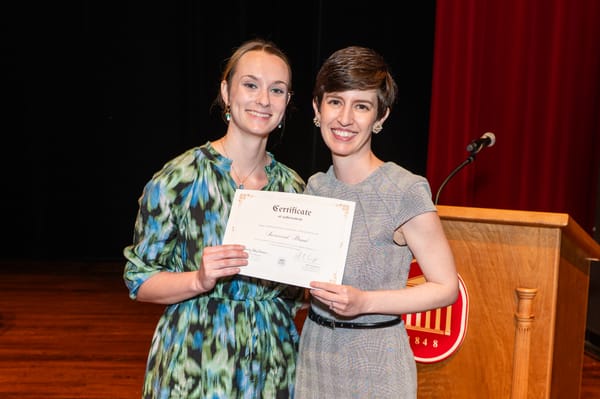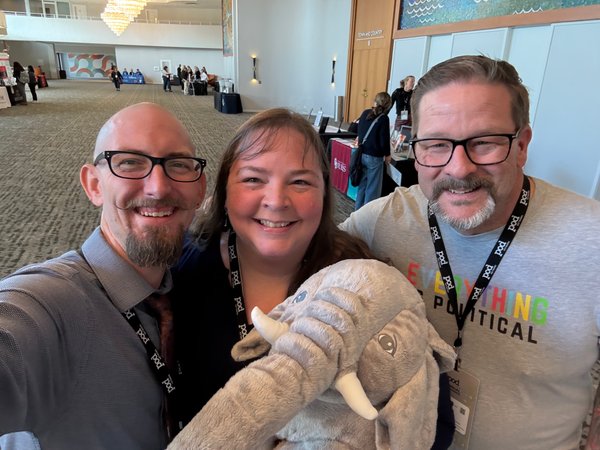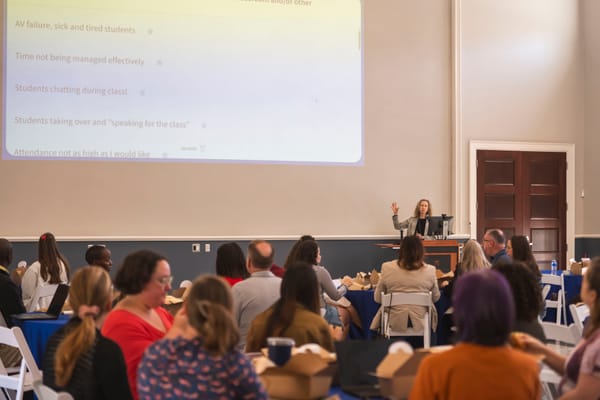What we read this summer
The CETL Team includes avid readers. In this post, we share what we read this summer.

Members of the CETL team are all avid readers (and writers). We thought it would be fun to share with our community some of the things we read this summer.
Josh
This summer, I read Don Quixote by Miguel de Cervantes, Sense and Sensibility by Jane Austen, Kindred by Octavia Butler, and Peace is Every Step by Thich Nhat Hanh. You’ll notice, of course, that none of these have anything at all to do with teaching (directly, at least). Sometimes, the best thing we can do for our teaching is to give ourselves a break from thinking about it so much. Allowing the mind to rest, rejuvenate, and recover can set the stage for more focused and creative pedagogical insights as the time for course planning draws closer.
Emily
This summer in work-related reading, I tackled Specifications Grading: Restoring Rigor, Motivating Students, and Saving Faculty Time by Linda B. Nilson in preparation for the book Josh and I are writing. I also read The Opposite of Cheating: Teaching for Integrity in the Age of AI by Tricia Bertram Gallant and David A. Rettinger. (We’ll read The Opposite of Cheating in CETL’s Faculty Reading Group this semester, and if you’re interested, you can register now!)
My broad takeaway from these: good teaching after AI looks pretty much the same as good teaching before AI. Technologies change, but the basic ways we relate to, motivate, and engage our students as human beings remain constant.
In semi-work-related reading, I devoured More Everything Forever: AI Overlords, Space Empires, and Silicon Valley's Crusade to Control the Fate of Humanity. I’ve been curious about some of the ideology behind all the AI hype we’re seeing, and this book delivered. I highly recommend it for insights on what Silicon Valley tech billionaires are up to these days. Spoiler alert: it’s not good!
A runner-up in this category that’s a little more AI-focused: The AI Con: How to Fight Big Tech’s Hype and Create the Future We Want, by Emily M. Bender and Alex Hanna.
In non-work-related reading, I ambled through the first book in the Magpie Murders series by Anthony Horowitz. I’m a big fan of old-school murder mysteries (okay, mostly just Agatha Christie), and I’ve put off reading this book for almost a decade for fear it might disappoint me. Unfortunately, it did. I guessed the murderer 100 pages before it was revealed—something I’m not usually very good at!
Liz
I spent my summer participating in a dizzying array of reading groups, including two I organized, as a way to bring structure and community to a span of time that often lacks both.
One of my favorites from those groups is Dr. Sunita Sah’s recent book, Defy: The Power of No in a World that Demands Yes. Those who know me will know that I am laughably bad at harnessing the power of saying no. That’s equal parts socialization and personality (hello to my fellow Enneagram 2s!). What I appreciated about Defy was its focus on articulating our core values as a necessary first step to engaging in principled defiance. Our reading group explored lists of values to identify ones that felt especially resonant for each of us. Mine were compassion, justice, awe, curiosity, and delight.
Sah offers a five-stage process to defiance, as depicted in the image below (taken from her book). They are:
- Tension: A situation feels uncomfortable for reasons we may not fully be able to articulate. We feel unease or tension, which—if we listen to this—signals that something is unfolding that violates a value.
- Acknowledgement (to ourselves): We recognize the tension and acknowledge to ourselves that we are feeling it. This moves us from unconscious or subconscious states of tension into conscious awareness of something that makes us uncomfortable.
- Escalation (vocalize to others): As we recognize the discomfort, we begin to vocalize the tension to others around us, particularly those whom we can trust. At first, this may be quiet and tentative. As others demonstrate solidarity, we may become more public or confident in our articulation of values mismatches.
- Threat of noncompliance: The tension persists, and we have shared this with others. As time progresses, we become increasingly unwilling to go along with something that violates our values. We tell others we may not comply moving forward.
- Act of defiance: We articulate what Sah calls a true no—a statement of unwillingness to consent to what is happening.
I found Sah’s descriptions of principled defiance to be enormously helpful, particularly in this moment.
Other books I read in community this summer are More Than Words: How to Think about Writing in the Age of AI (John Warner), Crip Spacetime: Access, Failure, and Accountability in Academic Life (Margaret Price; also available as an open-access book), Higher Expectations: How to Survive Academia, Make it better for Others, and Transform the University (Roberta Hawkins and Leslie Kern), The Last Human Job: The Work of Connecting in a Disconnected World (Allison J. Pugh), and Uncertain: The Wisdom and Wonder of Being Unsure (Maggie Jackson).
In my prolific pleasure reading habit, I was especially charmed by a new-ish novel by Abby Jimenez, Just For the Summer. Technically, this is the third in a series she calls “Part of Your World,” but it easily stands alone. All of Jimenez’s writing delights me in a way few fiction authors manage. I rarely reread novels, but after I finished the last page of this one, I immediately wanted to turn back to the beginning and start anew.




